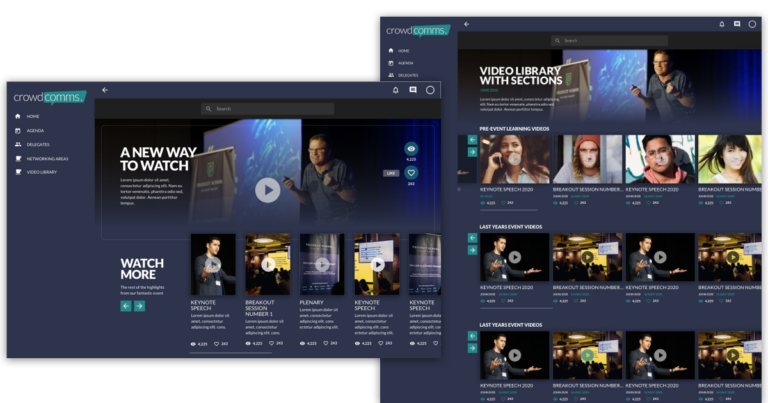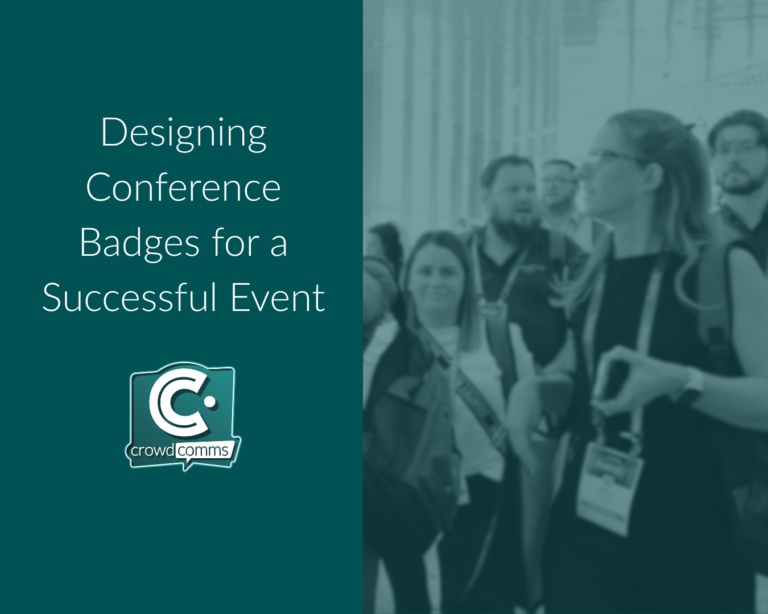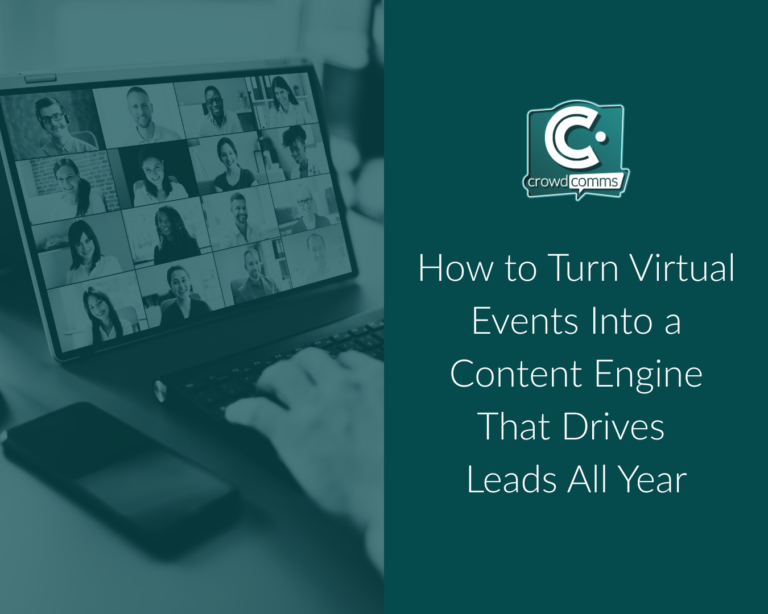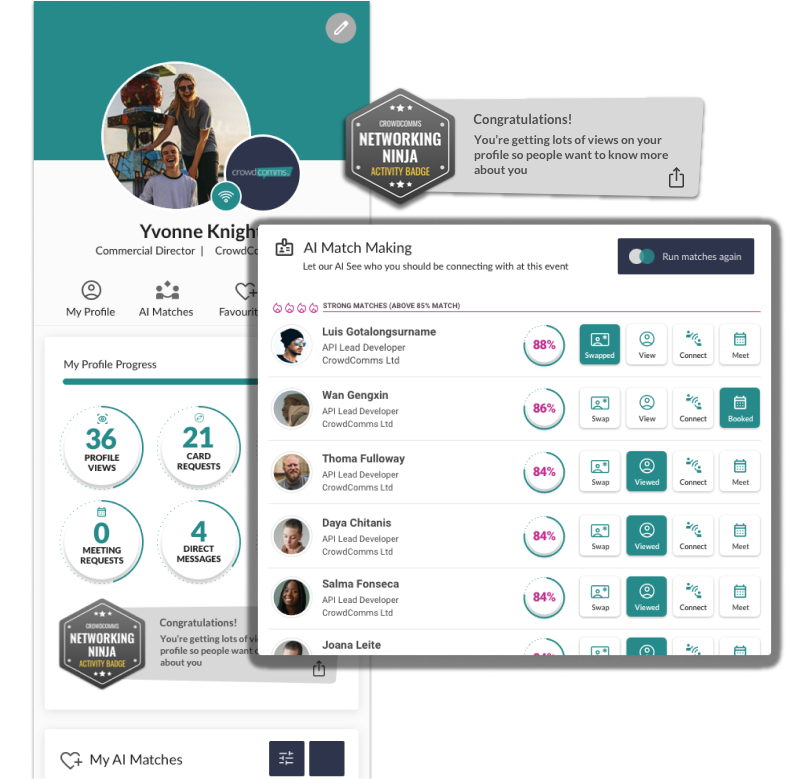
In the fast-paced world of events, “networking” has become a buzzword that often means little more than collecting business cards, forcing small talk, or hoping you bump into the right person. But times are changing. Event organizers, sponsors, and attendees are looking for smarter, more intentional ways to connect — and that’s where event matchmaking comes in.
In this edition of Event Advice, Matt sat down with Henry, Director of New Business at CrowdComms, to explore what matchmaking really means, why it matters, and how technology can transform the way we connect at events.
What Is Event Matchmaking?
At its core, matchmaking in events is about creating tailored, curated connections that are more intentional than traditional networking.
-
- Networking = random, unplanned, hoping to meet the right person.
- Matchmaking = structured, data-driven, and designed to link attendees, sponsors, and exhibitors with the people they most want to meet.
Whether it’s connecting buyers with sellers, bringing like-minded professionals together, or facilitating cross-industry collaboration, matchmaking creates opportunities that are efficient, purposeful, and memorable.
Why Matchmaking Matters for Events
1. For Attendees: Time-Saving Efficiency
Attendees don’t want to waste hours walking the show floor hoping to bump into someone useful. A matchmaking tool acts like a personal guide, helping them find the right people to talk to quickly and easily.
-
For Sponsors & Exhibitors: High-Quality Leads
Sponsors are under pressure to prove ROI. Matchmaking ensures they’re meeting the right people at the right time, with tools like lead retrieval and one-to-one meeting scheduling that prove the value of every interaction.
-
For Organizers: Event Success & Satisfaction
For event planners, matchmaking is an efficiency engine that boosts engagement, drives ROI, and improves attendee satisfaction scores. When used effectively, it makes the difference between an event that feels random and one that feels curated and valuable.
What Makes a Meeting Meaningful?
Henry put it perfectly: a meaningful meeting is about having an authentic exchange.
-
- Not forced small talk.
- Not ticking a box.
- But genuine conversations that you remember long after the event.
Authenticity is critical. In a digital world full of noise and polished façades, in-person connections stand out because they are real. Matchmaking facilitates this by ensuring you’re connected with the right people in the first place.
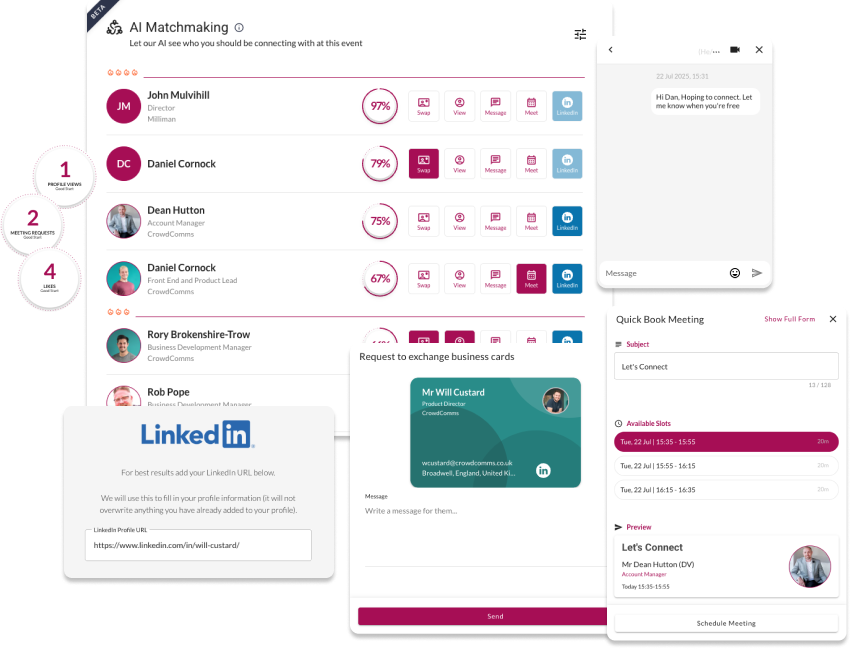
How Technology Powers Event Matchmaking
Event matchmaking at scale wouldn’t be possible without technology. Modern event platforms (like CrowdComms) integrate:
-
- AI-driven recommendations → suggesting matches based on interests, roles, and goals.
- Profile integration (e.g. LinkedIn) → pulling in professional details to enhance matchmaking accuracy.
- One-to-one meeting booking → allowing attendees and sponsors to schedule times directly.
- Chat and lead capture tools → enabling seamless follow-up and ROI tracking.
But — and this is key — technology only facilitates the match. Humans still need to have the conversation, build rapport, and turn that introduction into something valuable.
Balancing Tech-Driven Matches with Human Choice
A great matchmaking tool gives you recommendations, but the attendee decides who to meet and how to connect. The balance is:
-
- Technology = scale and efficiency.
- Humans = authenticity and decision-making.
Together, they create smarter, more effective events.
Common Challenges with Matchmaking (and How to Overcome Them)
Even the best matchmaking tool can fall flat if organizers don’t set it up properly. Here are the top challenges:
- Poor Communication
If attendees don’t understand why matchmaking matters, they won’t use it. Clear “what’s in it for me?” messaging is essential pre-event, during, and post-event.
- User Experience
Clunky, confusing apps kill adoption. The UI must be intuitive, seamless, and quick to use.
- Lack of Time & Space
Many organizers forget to build matchmaking into the agenda. You can’t expect meaningful meetings if you don’t provide dedicated time and space for them to happen.
- Not Measuring Success
ROI must be tracked. From number of meetings scheduled to quality of leads generated, organizers need post-event reporting to prove value and plan improvements.
Tips for Organizers Implementing Matchmaking
-
- Communicate Early & Often – Sell the value to attendees, sponsors, and stakeholders.
- Plan Dedicated Time & Space – Don’t squeeze meetings into noisy corners.
- Keep It Simple – A user-friendly platform drives adoption.
- Use AI Wisely – Leverage recommendations, but always let humans choose.
- Measure and Report – Track ROI, feedback, and long-term impact.
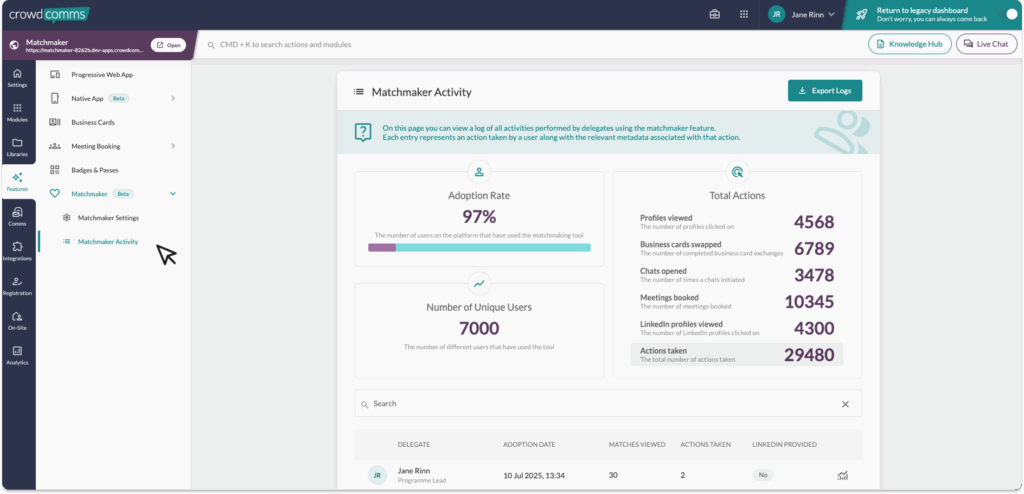
Beyond Business: The Human Side of Matchmaking
Matchmaking doesn’t just drive deals — it builds relationships. It can connect peers, foster collaboration, and even create friendships.
As Henry and Matt joked, the idea of “festival speed dating” might sound lighthearted, but it highlights an important truth: when people connect authentically, powerful things happen.
Final Thoughts: Matchmaking That Matters
Event matchmaking is no longer a “nice to have.” It’s becoming a critical feature that defines whether events succeed or fail.
The combination of technology, strategy, and authentic human connection is what transforms events from crowded rooms into curated experiences.
As Matt summed up: “The tech facilitates the conversation. The value comes from the people.”

Ready to Transform Event Networking Into Matchmaking?
Stop leaving event connections to chance. With CrowdComms’ AI-powered matchmaking app, you can:
✔ Connect the right people at the right time
✔ Deliver ROI for sponsors and exhibitors
✔ Save time for attendees and organizers
✔ Create authentic, meaningful event experiences
Contact us today to see how our AI matchmaking app can help your next event succeed.
